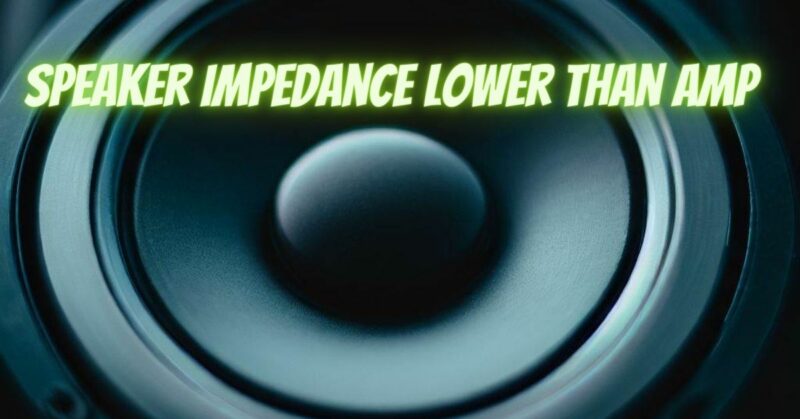When connecting a speaker to an amplifier, it is important to match the speaker impedance to the amp’s output impedance. If the speaker impedance is lower than the amp’s output impedance, it can cause a number of problems, including:
- The amp may overheat, which can damage the amplifier.
- The speaker may be damaged.
- The sound quality may be poor.
In most cases, it is not advisable to connect a speaker with a lower impedance than the amp’s output impedance. However, there are a few exceptions. For example, some amps are designed to work with speakers of different impedances. In these cases, the amp will automatically adjust its output power to match the speaker impedance.
If you are not sure whether or not it is safe to connect a speaker with a lower impedance to your amp, it is always best to consult with the manufacturer or a qualified technician.
Here are some additional things to keep in mind:
- The amp’s output impedance is typically printed on the amp’s back panel.
- The speaker impedance is typically printed on the speaker’s label.
- If you are connecting multiple speakers to an amp, the total impedance of the speakers must be equal to or greater than the amp’s output impedance.
- You can use a speaker impedance calculator to help you determine the total impedance of a speaker system.
By following these tips, you can help to ensure that your speakers and amp are safe and sound.


